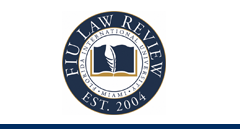Alternate Title
The Ultimate Injustice: States' Failure to Take Steps to Prevent Wrongful Convictions and, when Wrongful Convictions are Exposed, to Provide Adequate Assistance to Exonerees
Keywords
U.S. Constitution, Criminal Law, Criminal Procedure, Wrongful Convictions
Abstract
Among the many rights guaranteed by the Constitution are the rights to a presumption of innocence, equal protection, due process, a speedy trial, a trial by jury, and legal counsel, if indigent and charged with a serious crime. But those rights do not ensure that the justice system succeeds every time. The United States has exonerated over 3,000 individuals since 1989. The exonerees have collectedly lost over 26,700 years of their lives. Each exoneration has provided insight into the causes of wrongful convictions, the issues with current compensation laws, and even the changes that need to be implemented to avoid further injustice. Additionally, there are thousands of individuals still incarcerated today for wrongful convictions. Therefore, it calls into question what America is doing to prevent wrongful convictions and to compensate its victims as they transition back into the community. The answer is not enough.
Recommended Citation
Natalie Lahera, The Ultimate Injustice: States' Failure to Take Steps to Prevent Wrongful Convictions and, when Wrongful Convictions are Exposed, to Provide Adequate Assistance to Exonerees, 17 FIU L. Rev. 703 (2023), https://doi.org/10.25148/lawrev.17.3.13.





